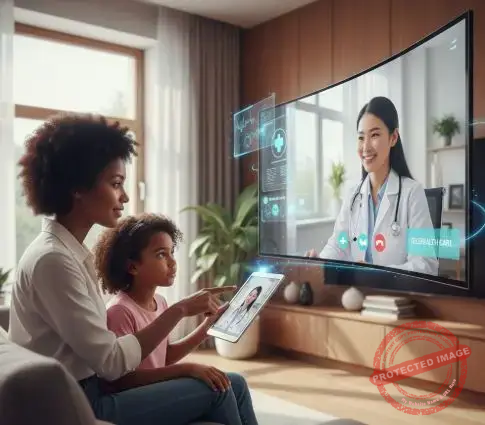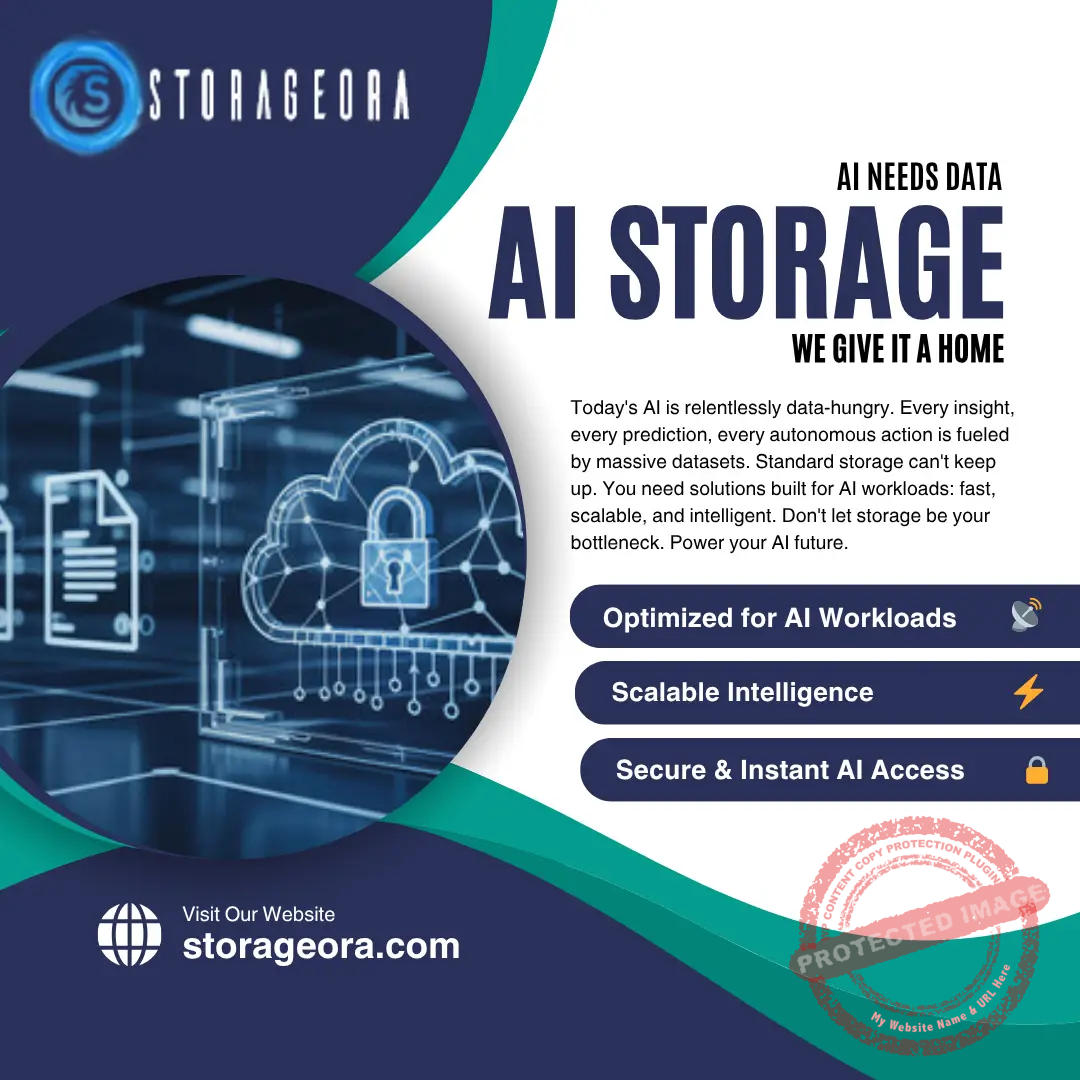How Artificial Intelligence Is Powering a New Era of Predictive, Personalized, and Preventive Healthcare.
The Rise of Intelligent Telemedicine
Telemedicine began as a way to deliver medical care remotely—but with Artificial Intelligence (AI), it’s evolving into something far more powerful. AI is transforming virtual healthcare into an intelligent, predictive, and continuous care ecosystem that learns from every interaction.
From analyzing patient data to triaging symptoms and even supporting diagnostics, AI is revolutionizing how doctors, patients, and systems connect. What once required in-person consultations and manual assessments can now happen in real time, powered by algorithms trained on millions of medical data points.
This convergence of telemedicine and AI marks the beginning of a new era—where healthcare becomes faster, smarter, and more personalized than ever before.
AI as the New Clinical Partner
AI doesn’t replace physicians—it augments them. By automating routine tasks and uncovering hidden insights in complex datasets, AI allows healthcare professionals to focus on what matters most: patient care.
Key applications include:
-
AI Triage Systems: Chatbots and virtual assistants analyze symptoms to guide patients to appropriate care levels.
-
Predictive Diagnostics: Machine learning models detect patterns linked to disease progression before symptoms escalate.
-
Decision Support: AI tools assist doctors with treatment recommendations, cross-referencing millions of case studies in seconds.
-
Clinical Documentation: Natural Language Processing (NLP) automatically records and structures patient interactions, reducing administrative burden.
AI acts as a digital co-pilot, empowering clinicians to make faster and more accurate decisions.
Precision Medicine: Healthcare Tailored to the Individual
AI is unlocking the full potential of precision medicine, where treatment is customized to an individual’s unique genetic, environmental, and behavioral profile.
Through advanced analytics, telehealth platforms can now:
-
Analyze genomic data to identify risk factors and drug responses.
-
Use wearable data to monitor vital signs continuously.
-
Integrate lifestyle information (sleep, diet, stress) to guide holistic care.
This data fusion allows physicians to move from reactive treatment to proactive prevention, creating care plans designed for the person, not just the population.
AI-Powered Remote Diagnostics
One of the most transformative impacts of AI in telemedicine lies in remote diagnostics. Algorithms trained on massive datasets of imaging and biosensor data can identify abnormalities with remarkable accuracy.
Examples include:
-
Radiology and Pathology: AI detects early-stage cancers, fractures, or organ irregularities through imaging analysis.
-
Dermatology: Mobile apps analyze skin lesions for signs of melanoma.
-
Cardiology: Smart devices monitor ECG data to detect arrhythmias in real time.
-
Ophthalmology: AI systems screen for diabetic retinopathy using smartphone-based imaging.
These capabilities enable clinicians to extend diagnostic precision to patients anywhere in the world—turning telehealth into a virtual diagnostic laboratory.
Automation and Workflow Efficiency
AI-driven automation is eliminating bottlenecks in telehealth operations:
-
Scheduling, billing, and prescription refills are managed by virtual assistants.
-
Automated follow-ups ensure patients adhere to treatment plans.
-
Intelligent routing connects patients to the right specialist instantly.
By streamlining operations, healthcare systems reduce costs while increasing access and quality—realizing the long-promised goal of value-based digital care.
Ethical and Clinical Challenges
Despite its promise, AI in telemedicine must navigate significant challenges:
-
Bias in Algorithms: Training data that lacks diversity can produce inaccurate or inequitable outcomes.
-
Transparency: Clinicians and patients must understand how AI arrives at its conclusions.
-
Regulatory Oversight: Governments and medical boards must ensure safety and accountability.
-
Data Privacy: Continuous data collection raises sensitive questions about consent and ownership.
Ethical governance frameworks and explainable AI systems are critical to maintaining trust and equity in digital healthcare.
AI, Edge Computing, and Real-Time Care
The next generation of telemedicine will merge AI with edge computing, enabling faster processing directly on medical devices.
Imagine an AI model embedded in a wearable heart monitor detecting anomalies instantly, without sending data to the cloud. Or an in-home diagnostic kit that analyzes test results locally before syncing securely with a healthcare provider.
This decentralized intelligence will make healthcare more responsive, secure, and accessible than ever before.
Closing Thoughts and Looking Forward
AI is no longer a futuristic concept in healthcare—it’s the driving force behind the evolution of telemedicine. By merging data science, clinical knowledge, and automation, AI is enabling healthcare that is not only digital, but deeply human-centric.
As algorithms continue to learn and adapt, telemedicine will become more predictive, more personalized, and more preventive—shifting the global healthcare paradigm from treating illness to sustaining wellness.
In the near future, the best doctors won’t just rely on experience—they’ll work side by side with intelligent systems that think, learn, and heal.
References
-
“AI in Telemedicine: Transforming Digital Health” – World Health Organization (WHO)
https://www.who.int/publications/ai-in-telemedicine-transforming-digital-health -
“Artificial Intelligence and the Future of Healthcare” – Harvard Business Review
https://hbr.org/2024/08/artificial-intelligence-and-the-future-of-healthcare -
“Precision Medicine and AI Integration in Telehealth” – McKinsey & Company
https://www.mckinsey.com/industries/life-sciences/our-insights/ai-and-precision-medicine-in-telehealth -
“Ethical AI in Digital Healthcare Systems” – Deloitte Insights
https://www.deloitte.com/insights/ethical-ai-in-digital-healthcare-systems -
“Remote Diagnostics and AI-Enabled Care Platforms” – MIT Technology Review
https://www.technologyreview.com/2024/10/02/remote-diagnostics-and-ai-enabled-care-platforms
Author: Serge Boudreaux – AI Hardware Technologies, Montreal, Quebec
Co-Editor: Peter Jonathan Wilcheck – Miami, Florida
Post Disclaimer
The information provided in our posts or blogs are for educational and informative purposes only. We do not guarantee the accuracy, completeness or suitability of the information. We do not provide financial or investment advice. Readers should always seek professional advice before making any financial or investment decisions based on the information provided in our content. We will not be held responsible for any losses, damages or consequences that may arise from relying on the information provided in our content.





 AMD
AMD TMC
TMC IE
IE MSI
MSI NOK
NOK DELL
DELL ECDH26.CME
ECDH26.CME